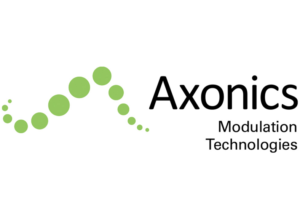Axonics has announced the US Food and Drug Administration (FDA) approval of its next-generation rechargeable implantable neurostimulator for its r-SNM system under a premarket approval (PMA) supplement.
 This next-generation implantable neurostimulator decreases how frequently a patient needs to recharge their implanted device to once a month for about one hour. This compares to the current recharging interval which is one hour every two weeks. This new feature will also give patients the option to customise their charging experience, for example, choosing to charge for only 15 minutes once a week or only one hour every two months for those patients at lower stimulation intensity levels. In addition to extending the recharging interval, the enhanced implantable neurostimulator will experience virtually no battery degradation over the 15+ year life of the neurostimulator due to the reduced charging burden.
This next-generation implantable neurostimulator decreases how frequently a patient needs to recharge their implanted device to once a month for about one hour. This compares to the current recharging interval which is one hour every two weeks. This new feature will also give patients the option to customise their charging experience, for example, choosing to charge for only 15 minutes once a week or only one hour every two months for those patients at lower stimulation intensity levels. In addition to extending the recharging interval, the enhanced implantable neurostimulator will experience virtually no battery degradation over the 15+ year life of the neurostimulator due to the reduced charging burden.
The US FDA approved the long-lived, rechargeable, full-body MRI compatible Axonics r-SNM System in late 2019, with the first commercial sales occurring in November 2019. The next-generation Axonics implantable neurostimulator is expected to begin shipping to customers in the USA during the third quarter of 2020.
Raymond W Cohen, CEO of Axonics, commented in a news release, “Delivering a superior patient experience has been at the forefront of our development efforts. With this objective in mind, we developed a bespoke SNM device that is intuitive, fuss-free, long-lived, MRI full-body compatible, safe and clinically effective. The response by the SNM implanting community and their patients has been exceptional. This is evidenced by the fact that in just five months in the US market, approximately one-third of centres offering SNM therapy are now implanting the Axonics system. We will continue to innovate by adding new embodiments and capabilities to our SNM product offering as well as working with the FDA to expand clinical indications.”









